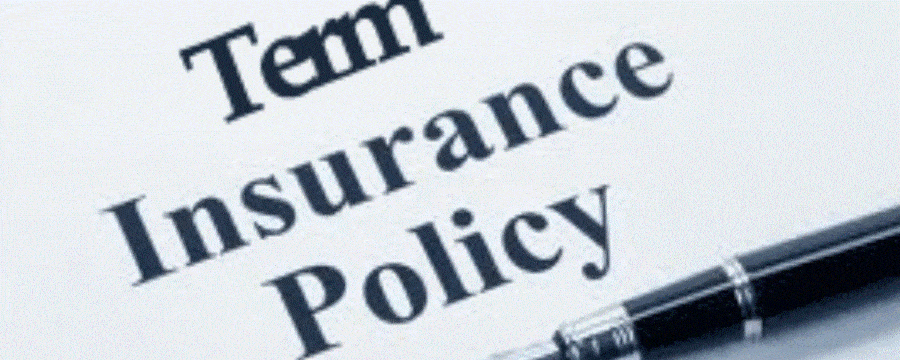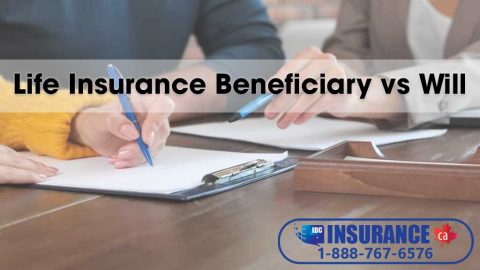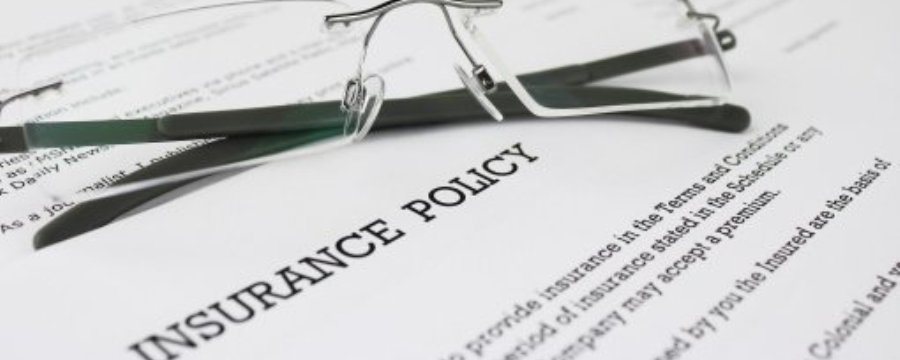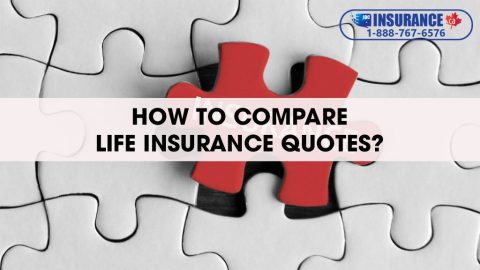Risk Analysis and Cost-Effective Solutions
(Term Life Insurance, Permanent Life Insurance, Disability Insurance & Critical Illness Insurance)
The purpose of this article is to review important considerations when determining how much life insurance you require as a business owner, the type of life insurance, and some tax saving ideas.
How much life insurance do you need?
There are two parts to consider. First are your family obligations. These tend to be temporary in nature and rather than repeat the considerations for term insurance, please refer to the article on this subject at Term Insurance Fundamentals. The amount for the family should be added to the amount determined for the business which is dependent of the following factors:
If family members are involved in the business, how easy will it be for them to find another similar paying job if the business fails?
If other family members can take over the business, coverage is required to bridge the time required to recover and get the business going again. In addition, the bank would like to see the loans paid off, as they will be very concerned about the risks.
If the business has to be sold, the chances of getting anything near its value will be remote. It is also likely that there are personal guarantees on the business debts and other financial obligations like leases that will have to be met. Creditors can attack life insurance intended for the family if the wife has signed guarantees for the business, which is very common. For example, if you have a lease for space or a bank loan that is guaranteed by the surviving spouse, the landlord and bank can come after the life insurance proceeds to satisfy the amount owed. I have seen where these unexpected business obligations exceeded the insurance and the family home had to be sold to meet them.
If the business is a partnership or corporation, it is important that there is a buy/sell agreement in place including the life insurance to enable the surviving partners or shareholders to buy out the surviving spouse’s interest in the company. Seek advice on who should own the insurance, as there are significant tax implications on where the ownership of this insurance is corporate owned or personally owned.
Again, the most affordable type of life insurance is term insurance and it is used to meet the need for cash as you build the business and provide for your family’s needs. The most common term insurance is for either a term of 10 or 20 years. This means that the premiums are guaranteed for that period of time and they will automatically renew at a higher rate for the next term period.
For example, a 10-year term insurance policy has guaranteed rates for the first ten years and then you can renew it for another ten years without a medical at a set rate contained in the policy. Do not renew it if your health is good as the renewal rates can be 300% to 400% more than the premiums if you shop around for a new policy. The assumption is that you only renew if you are too sick to get a new policy. Almost half the people renew term insurance and pay these high premiums. Term Life Insurance is very competitive and consequently it is important to use a broker to get the best rates for your situation.
There are also preferred rates and regular rates; about half the people will qualify for a preferred rate. At the time of this writing, a 35-year-old should be able to purchase $500,000 of term insurance for about $35 per month at regular rates but preferred rates would be in the $25 per month range.
It is not expensive to move the risk to your family of your death to an insurance company and it is the responsible thing to do. For more information visit www.insurancedirectcanada.com. There are also a number of significant tax advantages to incorporating some universal life in the insurance portfolio for small business owners. Please refer to Fundamentals of Permanent Insurance for a review of this and 8 money saving tips.
Disability Insurance
Whether you are a sole owner or have a partner, the financial risks to your business and family are very significant if you suffer a serious accident, injury or illness that prevents you from working for an extended period of time. Not only does your current income stop, future income also stops and, in most cases, many of the business and personal expenses continue. There are leases, loans, salaries and other commitments to be met and no income.
If you have Workers Compensation, it will pay a percentage of your income but only 8% of disabilities are covered by workers compensation as the accident occurs off the job or it is an illness. Further, these payments will likely fall far short of what you will need. One of the leading causes of divorce is long-term illnesses and the associated financial stress.
One way to provide some protection is with a good disability insurance policy. However, as it is designed to protect your income and if you are starting out, there is no income to protect. Consequently, you will only qualify for a minimal amount-likely $1,000 per month or less. Be careful as there are policies available for whatever amount you want up to $3,000 or more per month but they do an income test at time of claim and look at what your actual income was and they only pay out about 66% of this income regardless of the coverage you were paying for.
One consideration is to purchase a personal disability policy at least one year before you are planning to go out on your own based on your income at that time. The need for a year is that there is a question in most applications concerning your intention to leave the current employment within a year-a yes answer and you do not get the insurance. Ensure it is the type of policy that will cover you if you change jobs in the future and the monthly benefit coverage is underwritten when you take out the policy. This means they will pay what you have purchased and they will not do an income check at time of claim.
Disability insurance is a specialty and you seek the advice of someone who has expertise in this area and it may not be the same person who sells life insurance. Ask about how you will be paid if you can do part of your job or if you come back out of your disability. There are residual or partial disability payments when you start back and they are unique and different. Further, do you want to wait 30, 60, or 90 days before payments start? The premiums are about twice the cost for 30 days compared to 90 days. This is another excellent reason to have at least 90 days’ worth of expenses available for an emergency in cash or short-term investments.
Some disability policies will also cover your “out of pocket” business expenses such as leases and loan payments. You can add this rider regardless of how much income you have. Some also allow you to add a rider that will continue to make contributions to your RRSP if you are disabled which can be critical to your retirement as a small business owner.
A question to ask is would you rather have a job that pays what you are currently earning but nothing if you become disabled or one that pays about 97% of what you are currently earning after tax and will continue to do so up to age 65 even if you become disabled.
Money Saving Tip 1: All disability policies have an elimination period which is the time from when you are disabled until you start collecting. We recommend that you have three months’ expenses in cash or even credit available and take the 90-day wait as it significantly reduces the cost of the disability insurance.
Money Saving Tip 2: If there are two or more employees that you want to cover with disability insurance, it can be very tax advantageous to have a Corporate Income Loss Program where the corporation pays the premiums and it is tax deductible.
Money Saving Tip 3: Some policies will return all the premiums less any claims. The cost of adding this option can be considered an excellent investment. For example, a typical 40-year-old nonsmoking male business owner could purchase $3,000 of monthly protection for $85 per month with a 90 day wait while it would be $175 with a 30 day wait.
Critical Illness Insurance
A relatively new and very interesting policy called Critical Illness Insurance is also available. It will pay a lump sum of $50,000 or more 30 days after you are diagnosed with a life-threatening illness, such as heart attack, stroke, or cancer. Many people recover from these critical illnesses but not until they have gone through considerable emotional and health problems with the associated financial stresses. The premiums are lower than for disability insurance and the amount you purchase is not as limited by your income as disability insurance – $200,000 or more is generally not a problem.
Many business owners will return to work within three months from most injuries or simple illnesses and would not collect much on a disability insurance policy. It is the critical illnesses that keep them off the job for more than three months and all the money is paid out after 30 days. Discover more information about critical illness insurance.
The same 40-year-old businessman who could purchase $3000 per month of disability insurance could purchase over $200,000 of ten-year renewable Critical Illness Insurance. However, the premiums for the disability insurance do not change to age 65 and the Critical Illness insurance premiums will increase after 10 years.
Finally, as the business grows and increases in value, you may want to consider either disability buyout insurance or critical illness insurance on each partner/shareholder so that if one becomes disabled and cannot contribute to the company for a year or more there will be funds available to buy out their interest in the company.
Few companies can carry an ill partner for an extended period of time-you need an exit strategy. Ensure that the conditions are set out in a shareholder or partnership agreement and that the funds to make it happen will be there through insurance. It is an excellent way to get the company to pay for some critical illness insurance.
Finally, ensure that if you have insurance owned and paid for by your company, you have checked the tax implications with your accountant. When seeking advice on insurance, consult a well-recognized insurance professional who has at least five years of experience.










